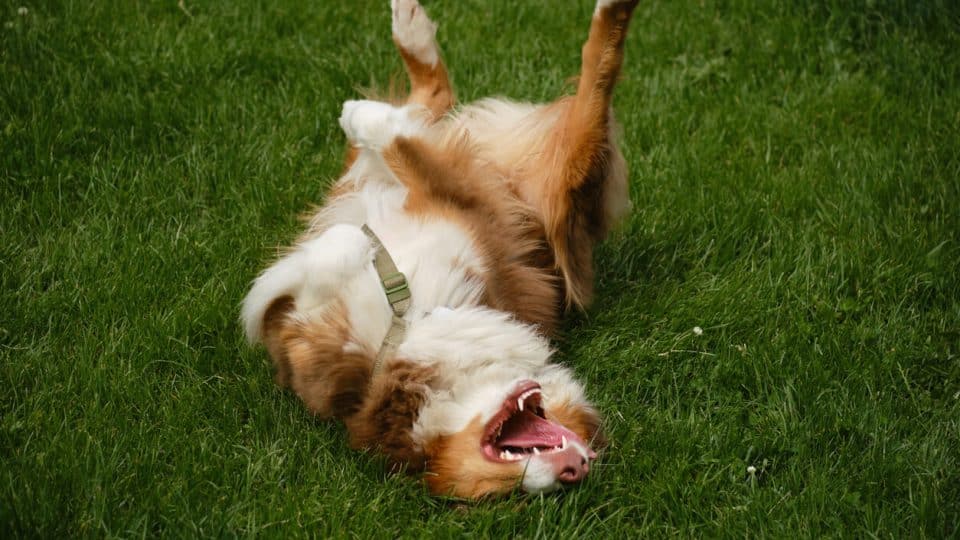Few things might be more entertaining than watching your dog embrace their inner comedian, so to speak. Maybe your goofy dog loves to hide under blankets and surprise you, has an adorably funny face, or simply can’t resist a playful romp!
Any dog can bring joy into your life—but goofy dogs have a certain something that many pet parents find extra delightful. But what makes certain dogs sillier than others?
Any dog breed can be playful and goofy—but genetics and early life experiences shape a dog’s personality, according to Dr Christine Calder, board-certified veterinary behaviourist.
Very social dogs may also enjoy fun and games with other dogs and people more than less social dogs. And, while certain dog breeds aren’t necessarily goofier than others, some breeds are much more sociable, according to Dr Sara Bennett, assistant clinical professor of veterinary behaviour at NC State University, USA.
Read on for a list of dog breeds that tend to be goofier than others, plus a few expert tips on having fun with your dog—whatever their personality!
Golden Retriever
Dr Bennett says Golden Retrievers tend to be more social than many other dog breeds. These dogs have a reputation for their friendly and playful temperaments.
Their social nature can often translate into playful behaviour with their pet parents. They love participating in fun activities with their families, and many develop a goofy demeanour.
French Bulldog
With their charmingly bat-like ears and expressive faces, French Bulldogs can be natural entertainers. Dr Bennett also calls them one of the most sociable dog breeds, as they tend to be more people-oriented than many other breeds.
Frenchies also tend to be less active than some breeds, especially since they can suffer from breathing problems due to their flat face, and do well as apartment dogs. However, they aren’t entirely couch potatoes and thrive on short bursts of play that often turn into silly antics.
Pug
Pugs are another breed known their comical natures. They’ve been bred almost purely as companion animals for some time, and most pugs enjoy spending time with their families and getting attention, which can often translate into playfulness.
Again, the Pug is a brachycephalic breed and a small dog that doesn’t need intense exercise, so they thrive in apartments and homes without large gardens.
Boxer
Boxers hold a top spot on any list of goofy dogs. These energetic pups are particularly fond of running and jumping games, which makes them a great fit for active families.
This breed makes the best match for people with plenty of time and energy, and they can make great companions for larger families with kids.
Dachshund
Dachshunds have long bodies and short legs, and you might often catch them engaging in playful behaviour that can be quite amusing.
Despite their smaller size, Dachshunds are hounds, through and through. They love to spend time around their people, but they also tend to follow their noses. They’re very clever and curious dogs, which means they often end up in silly situations.
Australian Shepherd
Australian Shepherds are very active dogs, and their high energy often translates to a lot of playfulness.
These dogs often enjoy games like fetch, and they tend to do well with agility, which helps develop a dog’s natural athletic abilities and intelligence.
Beagle
Beagles are curious, playful dogs who have a knack for getting into amusing situations—especially when food is involved! They love to follow their noses and interact with their families, which can lead to goofy behaviour.
While Beagles do have a smaller size, they’re working dogs who have plenty of energy. You’ll want to have a fully fenced garden, since a Beagle might follow their nose right into trouble.
Cocker Spaniel
Cocker Spaniels are another people-oriented breed. They enjoy being part of family activities and often engage in playful antics that can showcase their goofy side.
They enjoy activities like retrieving and running outside, but you may still notice their playful nature indoors!
Miniature Schnauzer
Miniature Schnauzers are lively dogs that often have a playful, sometimes silly, attitude. You’re most likely to notice goofy behaviour from dogs raised in a responsive, predictable environment.
As Dr Calder explains, dogs are much more likely to explore their environment and feel safe enough to be playful if they’ve been brought up well with lots of positive experiences and interactions.
Pomeranian
Pomeranians have exceptionally fluffy coats and energetic personalities. They often indulge in playful behaviour and can be a bit goofy occasionally. Their big personalities can keep you busy with some very entertaining antics!
These smaller dogs are very energetic, but they require less exercise than you might imagine, due to their very short legs. They can thrive in many environments, from apartment life to farm life.
How To Play With Your Goofy Dog
“Play is an important activity in an animal’s life,” Dr Bennett says, adding that play is a behaviour animals indulge in once their basic needs are met. Basic needs include food, water, shelter, and safety.
Whether your pup is a playful Pug or a bouncy Golden Retriever, interactive play can help keep them happy and healthy.
A few ideas for games that can help you make the most of playtime with your dog:
- Hide and seek. This is a fantastic game for dogs who enjoy using their noses and minds. Start by putting your dog in a ‘stay’ position. Then, hide somewhere in your home and tell your dog to ‘come’. This game engages all your dog’s senses and is simple enough for even children to play!
- Tug-of-war. This active game doesn’t require much room. You just need a durable tug toy your dog can grasp easily. Once they have it, just start gently pulling! Smaller dogs can even play this game indoors.
- Puzzle toys. Puzzle toys provide mental stimulation and help keep your dog from getting bored. Many don’t require human input, so they can help keep your pup entertained when they’re home alone.
- Fetch with a twist. Adding some variety to classic fetch can make the game a bit more exciting. For instance, you can use different types of balls or add obstacles to your garden fetch course.
- Training games. Even the most well-trained dog can benefit from incorporating training commands into play. Training games that involve tricks or practising ‘sit’ during a game of fetch can help exercise your dog’s mind and body at the same time!
The ideal playtime routine for your dog can depend on their age, energy level, and breed. Puppies and younger dogs generally need more frequent play sessions to manage their high energy levels. Older dogs generally need shorter, less frequent playtime sessions.
For puppies especially, play is an essential part of growth and training.
As Dr Bennett notes, play also helps dogs hone their social skills with both humans and other animals. It doesn’t just provide physical exercise, but also gives dogs important mental stimulation and helps strengthen your bond.






